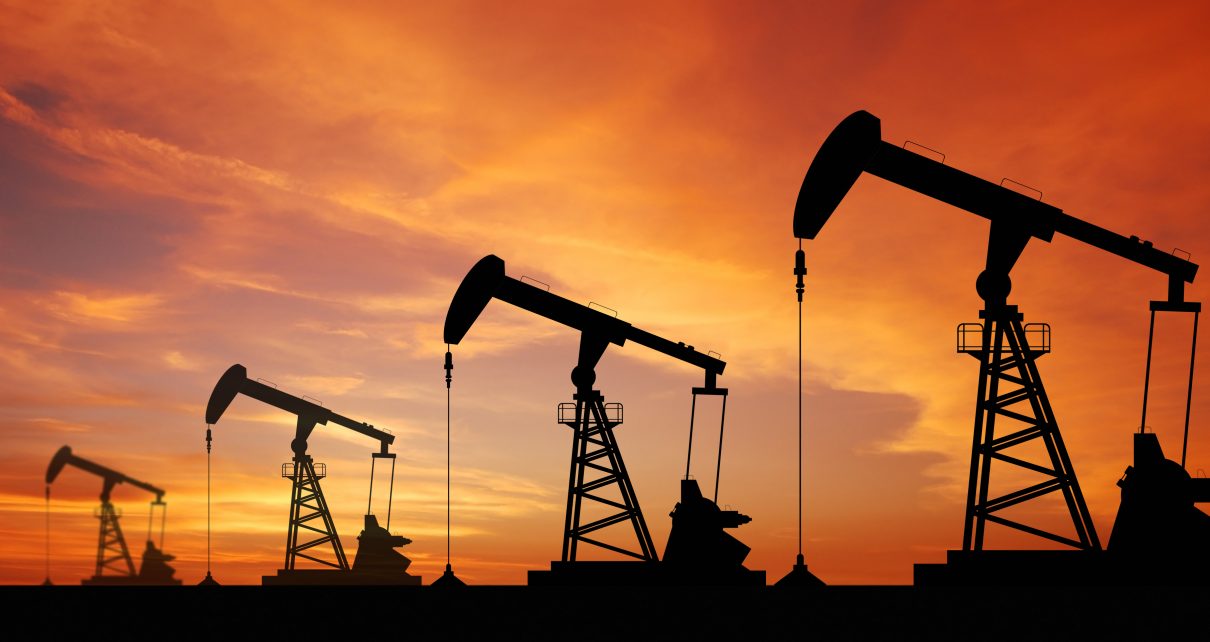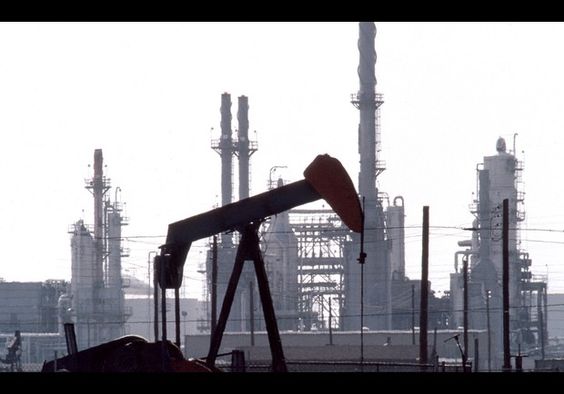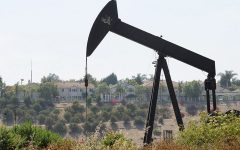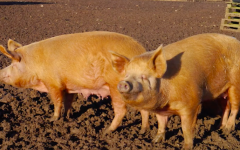
Oil rigs in the sunset. (Photo: Thaiview/Shutterstock)
Consumers Are the Collateral Damage In the War on Oil, Trucking, and Farming
The state is effectively cutting off groundwater supplies to farmers
By Andy Caldwell, October 25, 2024 11:51 am
The State of California is ramping up its war on oil and agriculture and, as a result, California is heading for some desperate times.
The war on oil includes production, trucking, and consumption. The war on production includes banning fracking, drilling with 3,200 feet from so-called sensitive receptors, and a new bill that allows cities, counties, and voters to outright ban construction of new oil and gas wells in their community. Another law requires gasoline refineries to have enough gasoline on hand to prevent price spikes that can create temporary shortages during the time the plants are shutdown to do maintenance. Unless the companies can build enormous storage tanks to store any extra production in advance of the maintenance closure, the new law presents an impossible scenario.
All this begs the question why any oil company would invest in California? They won’t. In fact, many are shutting down operations and leaving California. Because in addition to these restraints on production, the state has also issued various death sentences on the ability to deliver oil by way of banning new pipelines or preventing the repair of existing lines (Sable, formerly Exxon, continues to run the gauntlet of agencies that just want to say no to restarting the Gaviota coast pipeline and plant). The County of SLO blocked the construction of additional rail spurs that ended up causing Phillips 66 to close their Nipomo refinery and convert their gasoline refinery in the Bay Area to biofuels. The county of Santa Barbara has also limited the ability to truck oil which explains why most of the oil production in the Santa Maria Valley has been shut down ever since the Nipomo refinery was shut down. Then we have the closure of two Phillip 66 plants in Los Angeles that have been in production for 100 years for all the aforementioned reasons. Meanwhile, California must now import 75% of the oil it consumes.
Of course, the biggest death blow to the future of the industry are the state mandates in effect that will effectively ban natural gas in new construction along with banning the sale of diesel- and gas-powered vehicles in this state. The latter has already caused the largest trucking company in our region to close their business.
The war on fossil fuels affects agriculture because all their equipment runs on diesel. Farmers will have no ability to charge electric vehicles in the middle of a farm field. Moreover, many of the products farmers use to destroy pests and diseases are also derived from fossil fuels, not to mention the fertilizers that help the plants grow vigorously.
This war on agriculture has a new and disturbing component to it. Every county in our state has an Agricultural Commissioner who is charged with many duties including ensuring that only safe and approved herbicides, pesticides, and fertilizers are used and applied in accordance with the laws which have served to ensure the safest food supply in the world.
However, just a few months ago, the president of the State Association of Ag Commissioners was forced to write a scathing letter to state officials complaining about how environmental justice warriors were tag-teaming with the State Department of Pesticide Regulation (DPR) in such a manner as to hinder the ability of the ag commissioners to do their job of protecting farmworkers, the public and the environment through the enforcement of current pesticide laws and regulations.
Specifically, the letter expressed disappointment that DPR continues to cater to these stakeholders that support and facilitate false narratives such as the recent “Toxic Tour” of the Santa Maria Valley that DPR cosponsored with the local activist group CAUSE.
Finally, a state law known as SGMA, the State Groundwater Management Act, is a perfect example of the state mandating scarcity rather than creating abundance. The law is causing ag property values to plummet in the state because it is serving to cut off groundwater use for agriculture. The point here is that voters have authorized billions in bond measures to build more dam and reservoir capacity, but nothing has been built. Hence, in the name of managing water, the state is effectively cutting off groundwater supplies to farmers. Need I remind anyone that without water the farmer simply owns a bunch of dirt! Hence, we now have the California dust belt emerging in the San Joaquin Valley which used to be the most productive ag land in the world.
How long before consumers figure out that this war on oil, trucking, and farming (not to mention our electricity and water rates) is a war against their very livelihood?
- Gavin Newsom’s Hobson’s Choice - February 19, 2026
- Why Local Government Keeps Running Out of Your Money - February 13, 2026
- Help Stop the Proposed CA Tax on Driving - February 9, 2026





Praise!
People must clue in! There is no more time to waste!
People must vote differently.
The war on food is a war on our very lives.
To give the devil his due, the Left’s opposition to pesticides and synthetic fertilizers is based on reasonable, science backed arguments. Their solution, however, is not (do a search with the term “rewilding” and you’ll see what I mean). There’s a fix for this one issue; a gradual switch to regenerative agriculture, which the leftists in Sacramento have opposed. Beyond that, the attack on petroleum and agriculture makes absolutely no sense – until you study the World Economic Forum and its agenda, as well as those of its sister organizations, and the UN. Welcome to The Great Reset.
precisely right John
Sable is kind of a bad example since they want to put a Band Aid on a bullet hole, but sure, let them use the existing pipeline that failed right on schedule with its expiration date with no plan B.
Every now and then CA manages to pass a law that actually works to improve the lives of Californians. The majority of new laws only make things worse. This is unsustainable.